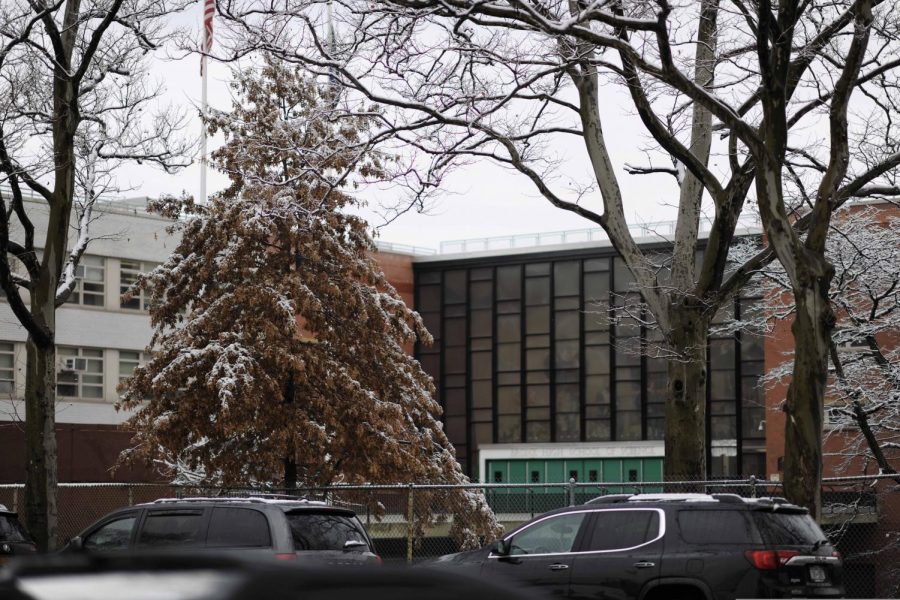Are Trigger Warnings on the Rise or on the Fall?
An exploration of the positive and negative effects that trigger warnings have upon students
The Bronx Science campus on a wintry day. Trigger warnings are so far used far more on college campuses than on high school campuses, but what if that changed in the future and schools like Bronx Science started using them?
Trigger warnings, a phrasing that entered the search-engine trends around 2011 and reached its peak in 2015, are still a controversial topic among students and teachers, especially in colleges. It may not seem like a controversial topic for high school students at the moment, but it may become an issue for them when they reach college.
According to ‘The Atlantic,’ “Trigger warnings are alerts that professors are expected to issue if something in a course might cause a strong emotional response.”
Trigger warnings have been a controversial topic for the past couple of years. Some people who agree with using trigger warnings in colleges believe that the trigger warnings will help students to feel safe and less anxious. This was the case especially when statistics for students with emotional distress in colleges increased.
According to a 2013 survey that was conducted by the ‘American College Counseling Association,’ the overall number of students who had psychological problems and emotional distress increased once a student was college-aged. Furthermore, the same association conducted another survey in 2014 and discovered that 54% of the surveyed college students said they “felt overwhelming anxiety” at some point during the past twelve months. As a result, students have been requesting trigger warnings, and college administrators and professors have been responding differently to the students.
According to ‘The Atlantic,’ “Trigger warnings are alerts that professors are expected to issue if something in a course might cause a strong emotional response.”
As of now, trigger warnings have been implemented mostly at colleges. However, what would it be like if high schools like The Bronx High School of Science used trigger warnings?
Alvin Li ‘20 said, “Some people are more emotional than others, especially during high school, when teenagers are growing both physically and mentally. It would not be bad idea to implement trigger warnings, but only for potentially disturbing words or topics, so that our education is not affected too much..”
However, everyone does not have the same opinion on the issue. Some students believe that trigger warnings should not be implemented.
“I think trigger warnings are unnecessary. Students go to college to learn about the field that they chose to study. In the real world, how are these students going to thrive if they cannot deal with some terms or topics that are relevant to the world today? ” Michelle Kim ’18 said.
Additionally, Jennifer Cheung ’18 said, “Implementing trigger warnings would only affect our college education in a detrimental way.”
Similar to Michelle and Jennifer’s opinion, Jonathan Haidt, a social psychologist, states that, “By almost any definition, critical thinking requires grounding one’s beliefs in evidence rather than in emotion or desire, and learning how to search for and evaluate evidence that might contradict one’s initial hypothesis.”
Lauren Choi is in her third year of journalism. She is the Managing Editor for ‘The Observatory’ and a Staff Reporter for ‘The Science Survey.’...
Nate Lentz is a Photo Editor and Chief Photographer for ‘The Observatory.’ Nate has always had a great appreciation for the world around him, and uses...

